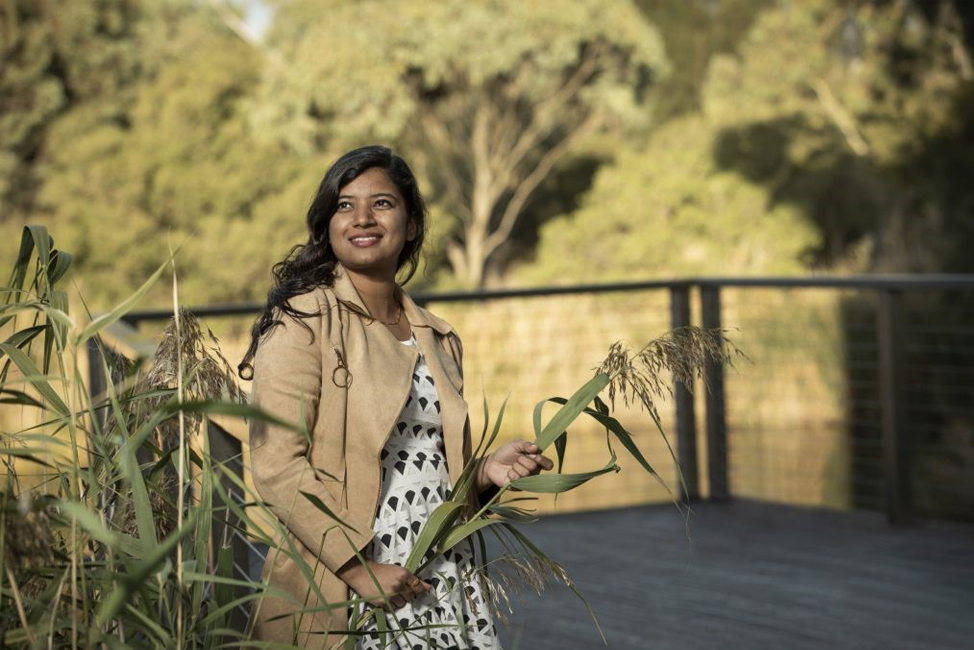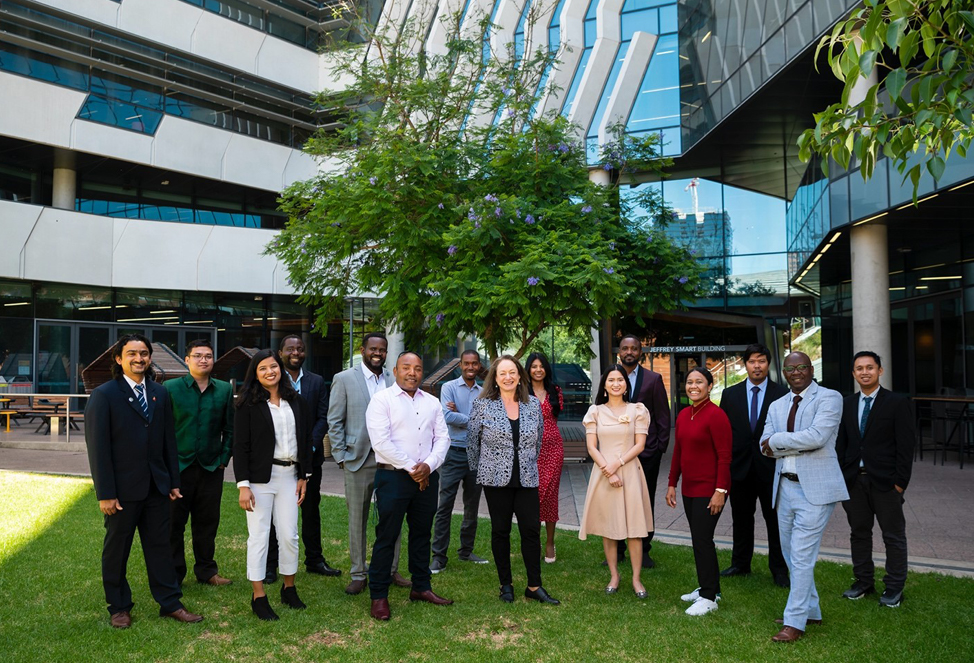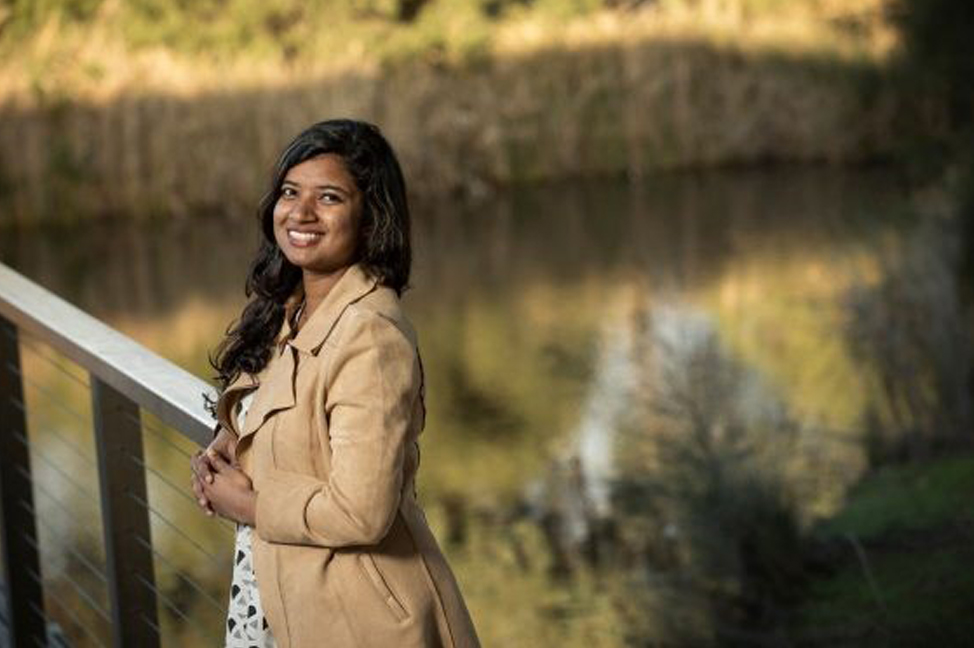- connecting our global network
30 July 2021
UniSA Graduate becomes First Female Muslim Civil Engineer in Nepal

Shahnaaz Ansari
Master of Engineering (Water Resources Management)
Hydrologist and Consultant Water Resource Engineer
Shahnaaz Ansari moved to Nepalese capital, Kathmandu, with her family as a child during a period of increasing urbanisation. Paired with the natural disasters that often plague the country, this sparked an intense drinking water crisis as the distribution and demand was unable meet the increasing population and development.
The uneven distribution of fresh water in the earth’s surface affects mostly lower-income countries like Nepal, with poor and excluded groups more vulnerable to the access of safe water.
Shahnaaz has stark memories of her mother being up all-night collecting drinking water from a dripping tap to provide for their loved ones. Experiencing how crucial access to safe and adequate quantities and quality of drinking water so early on in life, Shahnaaz knew she wanted to contribute to the world by solving the water crisis.
Engineering felt like a natural pathway as her father, also an engineer, began to take her into work with him and Shahnaaz would spend hours entranced by the mechanisms of the workshop.
This is where her aspirations to specialise in water resource engineering began to materialise, and in just two short decades, she would become the first female Muslim engineer in all of Nepal.

“In my community girls are limited to household chores and education is not given priority,” Shahnaaz says.
“Convincing my parents and family to study engineering was a tough task as this field is mainly male dominated and my parents were concerned about my professional stability and a sound career.”
“Now as I am educated and independent, and have served in my own district, I feel empowered and confident. Neighbours who used to pass discouraging comments on my career choice earlier now share my success story to their daughters.”
Passionate about this line of work, Shahnaaz wanted to do more, and decided to pursue a Master of Water Resource Management at the University of South Australia through the Australia Awards Scholarship.
The Australia Awards Scholarships are long-term development awards supported by the Australian Government and offer emerging leaders in developing countries the opportunity to undertake full-time postgraduate study in Australia in priority fields to build networks to drive change and contribute to development.
In one of her first roles out of university, Shahnaaz worked as the District Road Maintenance Engineer (DRME) in the District Technical Office (DTO), a government organisation in the Parsa District of Nepal, and discovered roadways, and their associated drainage and bridge works, are vital links in the economic and social life of our communities.
For a country like Nepal – which comprise 6000 rivers and rivulets – construction of roadways and bridges across them is a major challenge.

As part of the Strengthening National Rural Transportation Programme, appointed by Nepal’s International Labour Organization (ILO), Nepal, Shahnaaz spent her days working towards the maintenance and upgrading of rural roads and bridges, and also looking after the health and safety of maintenance workers.
“These projects require careful site selection, planning and construction, maintenance and incident management during their operational life to limit the risk of harm to water resources,” she says.
“Environmental issues and pollutants can arise from maintenance and clearing activities, plus the extra environmental damage caused by those who access sensitive water resources via the road.”
“It was such a fantastic opportunity to collaborate with experts of various organisation which included Deputy General of the Department of Local Infrastructure Development and Agricultural Roads (DoLIDAR), team leaders from World Bank, and the Country Director of the ILO.”
Shahnaaz is currently working as a hydrologist in a Nepalese consultancy, continuing this important work preparing proposals and design master plans for integrated water resource management systems in different areas of the country.
In a burgeoning career that has already seen great achievements, Shahnaaz is particularly proud of making a real difference and encouraging the participation of women in employment, and this vital work in eliminating the gender wage gap.
“I had to appoint 128 people for maintenance of rural roads in the Parsa district, and in the Terai plain area of Nepal women generally do not work as labourers in roads or houses,” says Shahnaaz. “Under my initiation and leadership, our team was successful in hiring all female workers on these roads so that they can earn and contribute to their family and community.”

“The selection procedure was fair enough to bring out workers belonging to these disadvantaged groups currently living below the poverty line. It was guaranteed that they also were to receive a standard district wage rate as allocated by the government.”
“This was a big initiation towards women empowerment and employment, and one which I am extremely proud of.”
As a result of this work, Shahnaaz was also recognised by her local government organisation as one of the most influential people from her district championing for women employment and empowerment.
Still, the proportion of women working across STEM-qualified industries in Australia hovers around a quarter, and heavily drops in lower-income countries like Nepal.
Shahnaaz has experienced first-hand how girls and women are held back by biases, social norms and expectations, influencing and damaging the quality of the education and work they have access to. She is a shining inspiration for those seeking a world of more opportunities.
“I would like to tell young girls to have confidence in their own dreams and focus towards achieving their goal,” she says.
“Sometimes, young girls get discouraged as they lack role models in this field because it’s viewed as more masculine. Their abilities are also often underestimated from family as well as teachers.”
“I encourage them to have visible and supportive role models and read their success stories for positive inspiration.”



